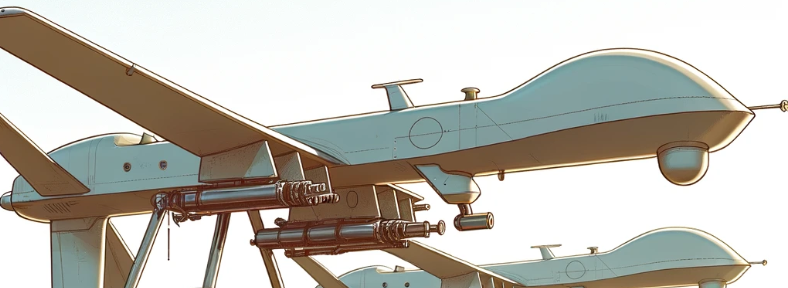| Listen to our audio presentation: The Lingering Aftermath of World War II |
In a worrying escalation of hostilities that previously simmered under the surface, Iran launched a colossal volley of approximately 300 drones and missiles at Israel in the first-ever direct attack by the Islamic Republic. The highly anticipated attack, corroborated by IDF Spokesman Rear Adm. Daniel Hagari, initiated on Saturday night, triggering air raid sirens throughout Israel as the military moved swiftly to intercept the Iranian projectiles.
The attack comprised 170 drones, 30 cruise missiles, and 120 ballistic missiles, of which Hagari confirmed that 99% were intercepted by air defenses. A young girl, however, sustained injuries from an intercepted missile’s shrapnel, emphasizing that despite the high interception rate, the attack was not without consequences.
The sight of drones and missiles whizzing through the sky over several countries illuminated the international solidarity in this struggle. U.S. forces shot down Iranian drones en route to Israel, while Jordanian jets neutralized dozens more. Britain committed resources to intercept any airborne attacks within range, reflecting a united front against Iran’s aggression.
At the regional level, Jordan, Iraq, Lebanon, and Israel temporarily closed their airspace, leading to multiple flight cancellations. This collective shutdown exemplifies the caution and quick coordination among countries in the face of imminent danger.
Despite the broad-ranging support and remarkable interception rate, Iran’s aggression reverberated across the region. The attack saw Iran’s Revolutionary Guards confirming the launch of dozens of drones and missiles against specific targets in Israel. Meanwhile, Iran’s Defense Minister Mohammad Reza Ashtiani threatened a stern response to any country that permits Israel to use its airspace or territory for attacks on Iran.
Major General Rafi Milo, IDF Home Front Command’s Chief, urged residents to continue vigilantly adhering to safety guidelines in light of the situational assessment, which could change. His statement served as a reminder that the situation’s fluidity demanded compliance from civilians for their safety. At the same time, Israel demonstrated its resilience and preparedness, with Defense Minister Yoav Gallant stating that Israel added new capabilities in anticipation of attacks from Iran.
The unprecedented attack underscored the strained relations between Iran and Israel, simmering further since Iran vowed to retaliate for the rumored Israeli airstrike killing seven Islamic Revolutionary Guard Corps members, including two generals, near Tehran’s consulate in Damascus.
This heightened tension has seen several international entities, including Lufthansa and Qantas airlines, reroute flights in the Middle East and Canada discourage its citizens from traveling to Israel.
- The attack comprised 170 drones, 30 cruise missiles, and 120 ballistic missiles launched by Iran.
- U.S. forces and Jordanian jets intercepted Iranian drones heading towards Israel.
- Jordan, Iraq, Lebanon, and Israel temporarily closed their airspace.
- Iran’s Defense Minister Mohammad Reza Ashtiani threatened retaliation against any country permitting attacks on Iran from their territory.
References:
1: Times of Israel: Iran fires some 300 drones, missiles at Israel…
2: U.S. Department of State: U.S. condemns Iran’s attack on Israel…
Twitter Post: In an unprecedented assault, Iran has fired around 300 drones and missiles at Israel. The attack is the first direct assault by the Islamic Republic, sparking international concern. #IranAttacks #IsraelUpdate #MiddleEastConflict

